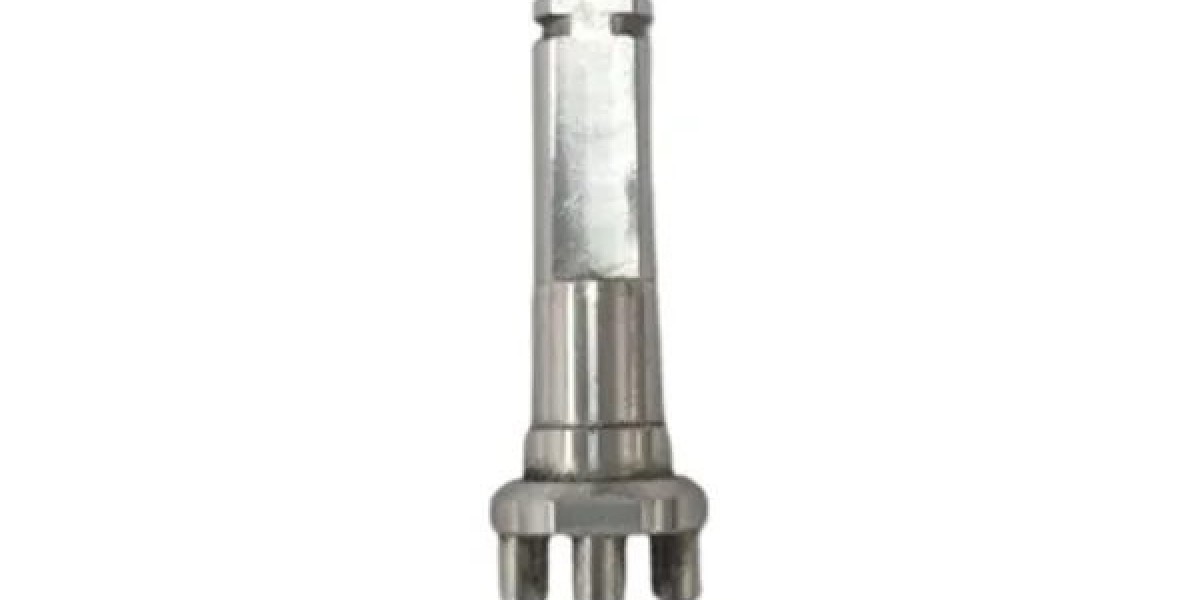Surgery is a complex and delicate field that demands utmost precision, safety, and efficiency. Behind the scenes, the success of surgical procedures heavily relies on the quality and functionality of the instruments used. While the overall design and craftsmanship of surgical instruments are vital, it is the components within these instruments that truly make them indispensable. In this blog post, we will delve into the significance of components in surgical instruments, exploring how they contribute to the overall success of surgeries and the well-being of patients.
1. Precision: The Backbone of Surgical Instruments
Precision is the cornerstone of any surgical procedure. Components within surgical instruments play a pivotal role in ensuring accuracy and reliability. For instance, the joints and hinges in forceps, scissors, and retractors must be meticulously designed and manufactured to enable smooth movement and precise control. The quality of these components directly impacts the surgeon's ability to manipulate tissues, grasp delicate structures, and perform intricate maneuvers with confidence.

2. Safety: Mitigating Risks and Enhancing Patient Outcomes
Patient safety is paramount in surgery, and the components within surgical instruments contribute significantly to this aspect. Take, for example, the importance of locking mechanisms in surgical instruments. These components ensure that instruments remain securely in place during procedures, preventing accidental slippage or disengagement that could lead to unintended tissue damage or complications. Additionally, components such as insulation materials in electrosurgical instruments help minimize the risk of thermal injury to surrounding tissues, enhancing patient safety during procedures.
3. Ergonomics: Comfort for Surgeons, Efficiency for Procedures
Surgeons spend hours performing intricate procedures, often requiring repetitive movements and precise control. Components within surgical instruments play a crucial role in enhancing ergonomics, providing comfort and reducing fatigue for surgeons. Ergonomically designed handles, grips, and finger rings with appropriate padding and texture not only improve surgeon comfort but also enhance instrument control and maneuverability. By reducing hand fatigue and improving dexterity, these components contribute to more efficient surgeries and better patient outcomes.
4. Durability: Longevity and Cost-Effectiveness
Surgical instruments are long-term investments for healthcare facilities, and their durability is of utmost importance. Components within these instruments, such as high-quality alloys, coatings, and surface treatments, significantly impact their longevity and cost-effectiveness. Robust components ensure that surgical instruments can withstand repeated sterilization cycles, resist corrosion, and maintain their functionality over time. By reducing the need for frequent replacements, durable components contribute to cost savings for healthcare facilities while ensuring consistent instrument performance.
5. Innovation: Advancing Surgical Techniques and Technologies
The field of surgery is constantly evolving, with new techniques and technologies emerging to improve patient outcomes. Components within surgical instruments play a vital role in enabling these advancements. For instance, the integration of microchips and sensors in instruments allows for real-time feedback, enhancing precision and safety during minimally invasive procedures. Similarly, the development of specialized components, such as articulating joints in robotic surgical instruments, has revolutionized the field, enabling surgeons to perform complex procedures with enhanced precision and control.
Conclusion:
In the realm of surgery, the importance of components within surgical instruments cannot be overstated. From enhancing precision and safety to improving ergonomics and durability, these components are the unsung heroes behind successful surgical procedures. As technology continues to advance, the role of components in surgical instruments will only become more critical, enabling surgeons to push the boundaries of what is possible and ultimately improving patient outcomes. By recognizing and appreciating the significance of these components, we can ensure that surgeries are performed with the utmost precision, safety, and efficiency, benefiting both surgeons and patients alike.
Kunshan Rui Pu Luo Machinery and Equipment Co.,LTD (RPL) is a company specializing in processing the precise parts of machinery and equipment. Base on its core capabilities, RPL has advanced and imported Japanese CNC Precision Automatic Lathe and domestic high-end lathe. RPL also has professional quality inspection devices, such as TESA MICRO-HITE,RATIONAL precision instrument, and pneumatic measuring instrument, etc. RPL’s business scopes mainly includes production and sales of automobile metal parts, automatic devices parts, semiconductor equipment parts, scientific instruments parts, medical devices parts, hardware machinery & metal parts, electromechanical devices, metal mold, and sales of electronics. We have high quality products, welcome to contact us!
https://www.rplmachining.com/The-importance-of-components-for-surgical-instruments-in-surgery.html










